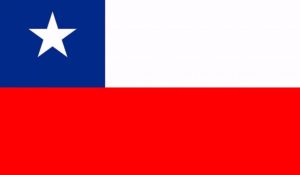
Region: Americas
Disability Definition
According to the 2010 law to establish rules on equal opportunities and social inclusion of persons with disabilities, a person with disability is defined as “a person who, having one or more physical, mental, or sensory impairments, of a temporary or permanent nature, when interacting with various barriers present in the environment, is prevented or restricted from fully and effectively participating in society, on an equal basis with others.”
Legislation
Chilean law 20,422 (2010) ensures the right to equal opportunities for persons with disabilities, including social inclusion, equal employment, and eliminating disability-based discrimination.
Employer Legal Requirements
In companies with more of 100 employees, at least the 1% need to have the certification of the national department of disabilities. There is a penalty of $4769.62 per person under this quota. Law number 21.275 Ley del Gestor de Diversidad e Inclusión requires employers to provide accomodations to employees with disabilities.
Accessibility Requirements
Requirements of accessibility that must be met by goods, environments, products, services and procedures, as well as nondiscrimination in standards, criteria and practices, in accordance with the principle of universal accessibility.
Reasonable accommodation is defined as the adjustments made to the physical and social environment and attitudes in order to meet the specific needs of persons with disabilities and thereby effectively and practically facilitate accessibility or participation of persons with disabilities on an equal basis with other citizens, without imposing a disproportionate burden.
Architectural accessibility has made significant progress. Communication accessibility has made progress. Transportation accessibility remains a significant challenge in many areas.
Cultural Norms
According to a statement in 2022 by Human Rights Watch, Chile’s civil code uses derogatory language about people with disabilities and in many cases strips them of their legal capacity, including by providing for full guardianship of them.
The government has not updated data about the number of people with disabilities since 2015.
Business Practices/Examples
Additional content coming soon.Insights
In Chile, this 2017 survey by the World Health Organization found that “one in five people (16.7% adults, 5.8% children) experienced severe difficulties in daily life, either due to health conditions or impairments they have, and are very likely to experience disability if their needs are not met. Of this, 41.5% of Chileans experience severe disability and 58.5% experience mild to moderate disability. More than one-third of Chileans (39.3%) with a severe disability were also not working.”
Supplier Diversity
Certification is in place for women-owned business enterprises (WeConnect).
Chile hosted first Regional Conference in December 2018 on Supplier Diversity and Inclusion for Latin America and the Caribbean.
Talent Sourcing Resources
The TACAL Foundation provides labor inclusion and training supports through an extensive networkl. The connections with external organizations nourish the institutional work, making Fundación TACAL a benchmark around the development of work models. They currently work with a wide and diverse network, including more than 100 public and private companies committed to the labor inclusion of people with disabilities.
Incluyeme.com helps companies to hire talent with disabilities. Since the organization started, they helped more than 1,300 people with disabilities find and secure a job. They operate in Argentina, Chile, Peru, Paraguay, Colombia, and Mexico.
Additional Resources
The Sociedad de Fomento Fabril (SOFOFA) is a leading organization in establishing and fostering partnerships with the public sector and civil society in the field of disability. Inspired by a comprehensive approach to social responsibility, the Disability Commission, founded by SOFOFA in 1992, seeks to identify and stimulate opportunities for social and labor integration in Chile for people with disabilities.
The Latin American Network of Non-Governmental Organizations of Persons With Disabilities and their Families (RIADIS) is a network formed by organizations of persons with disabilities from 19 countries in Latin America and the Caribbean. Formed in 2002, RIADIS represents national DPOs as well as several NGOs acting as technical collaborators.
References
UN Human Rights Office published this public policy review: IND_-_A.Lange_ENG.docx (live.com)
NGOs
Best Buddies secures jobs for people with intellectual and developmental disabilities (IDD). The organization educates and empowers people with IDD to be leaders, public speakers, and job holders.
